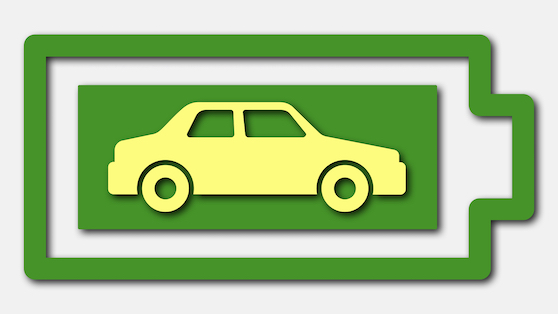
Articles
Cleantech
Electrified Transport
Features
News
News
Cleantech
News
Vehicles
Ottawa can do better on its own electric vehicle uptake and EV charger funding, says commissioner
November 7, 2023 | By Anthony Capkun

November 7, 2023 – National Defence, Parks Canada, Fisheries and Oceans Canada, and the Canada Border Services Agency contributed very little to meeting the government’s target of having 80% zero-emission vehicles (ZEVs) in the federal fleet by 2030.
This information comes from one of several reports released today by Commissioner of the Environment and Sustainable Development, Jerry V. DeMarco, from the Office of the Auditor General of Canada.
Together, these four organizations account for more than half the federal fleet—10,580 vehicles out of a total of 17,260.
An audit found that the percentage of ZEVs across all four organizations stood between 1% and 3% in 2022.
“These low numbers make it unlikely that Canada will meet the 2030 target, as doing so would involve replacing or converting about 13,000 vehicles by 2030,” reads the press release. “If progress continues at the current rate, the audit estimates that only 13% of federal government vehicles will be zero-emission by 2030.”
None of the audited organizations had a strategic approach in place to articulate how they planned to decarbonize their fleets and meet the target. While all had vehicle acquisition or replacement plans, those plans did not include details on how they would meet the 80% target by 2030.
“With a target date of 2030 and, given that the government typically replaces its vehicles on a 7‑year cycle, these organizations must act quickly to develop and implement realistic plans for acquiring zero‑emission vehicles so that the government fleet can help reduce greenhouse gas emissions,” said DeMarco.
Similarly, the four organizations’ reporting on their progress toward the target was often incomplete and inconsistent in their departmental sustainable development strategies, despite the requirement under the Federal Sustainable Development Strategy.
“In December 2022, the Government of Canada announced proposed regulations for new light-duty vehicles with requirements,” said Hon. Steven Guilbeault, Minister Environment and Climate Change, in response. “These regulations will soon be finalized, and will ensure that at least 20% of new vehicles will be [ZEVs] by 2026, with 60% by 2030, and 100% by 2035.”
Another audit examined Natural Resources Canada’s Zero-Emission Vehicle Infrastructure Program (ZEVIP), which funds the construction of EV charging stations across Canada to support the federal government’s call for all new light‑duty vehicles to be zero-emission by 2035.
As of July 2023, the program had funded 33,887 EV charging ports that were either completed or under development and is, in fact, on track to exceed the 2026 target of 33,500 charging ports.
However, the audit found that ZEVIP did not prioritize underserved areas when determining charging station locations.
The audit found that 87% of funded charging ports were at stations in Ontario, Quebec and British Columbia, with the remaining 13% in the other provinces, the Northwest Territories, and Yukon. Stations were mainly located in multi‑unit residential buildings and public places.
The audit further found that NRCan “did not do enough to ensure the equitable distribution of charging stations across Canada”.
Further, NRCan did not collect data to help it identify gaps in charging infrastructure based on the needs of communities. It also did not establish targets for underserved areas or prioritize locations unlikely to be served by other levels of government or by the private sector.
The audit also found that the program’s design and processes did not include measures to ensure the reliable operation of charging stations beyond the time of installation.
“Work is already underway to address charging infrastructure gaps and identify targets focused on charger use types that will be in place in 2024, which will be used to guide ZEVIP funding decisions in the new year,” said Hon. Jonathan Wilkinson, Minister of Energy and Natural Resources, in response to the report, adding that “work is being done to strengthen tracking and reporting to ensure the program is working as intended.”
CLICK HERE to access the 2023 Reports of the Commissioner of the Environment and Sustainable Development on the Office of the Auditor General of Canada website.
Print this page